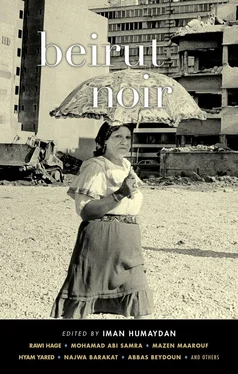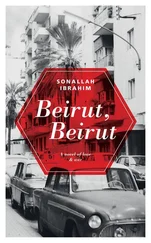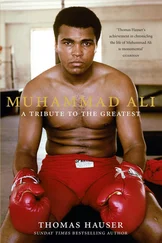He did what he said he would. He didn’t stay with her even one month beyond the two years. When she added up the period of time between when they met and their breakup, the precision of his calculations amazed her. Those beams of the setting sun started to dim, carrying her days on their wings. Hyam came over to comfort Lamia and Salma picked up her letters to deliver them to Philippe by hand or send them by post (she learned only afterward that Salma would actually throw them in the trash can). That summer, she didn’t change out of her winter clothes, nor did she change her winter bedclothes. Beirut’s fiery summer heat, with its sun and bombs, couldn’t warm the cold inside of her. Nothing protected her in the barren field that was her bedroom except her dressing gown and her covers. If it weren’t for the war, her winter couldn’t have gone on for so long and she would have enjoyed her love that ended before it even began.
Other forgotten memories surfaced from her “secret” stash of photos. They showed the blondness of Philippe’s stubbly beard, contrasting with his black hair and eyebrows and the shadows of his thick eyelashes. She recalled passing her hand over the freckles on his lower lip slanting down toward the fluff of his beard, the spot she touched stinging her own face. She drew back, and he grabbed her by the hand and threw her on the ground of the cement rooftop. There were stars above her eyes, glittering in a small pool of rainwater. She remembered him sitting on the sofa beside her, snatching pieces of fig from the plate in front of him, peeling them and scraping off the bits stuck on his fingers with his teeth. He seemed far away when he was united with her body (she was aware that after he got up, she’d put the same clothes back on that she’d worn earlier to greet him in, preparing for the moments of their encounter one by one, like someone replaying a scene in a film, and trying as much as possible to simulate his confident, slow caresses sliding from her legs up to her shoulders).
Philippe put his hand on her freezing shoulders. He liked to touch them; that’s what he told her.
“Will you put your hand on my shoulders next autumn, once you’ve gone? Will you feel pleasure when it’s cold?”
He encouraged her not to think about this.
“But why? Does this have to happen? Isn’t it up to us?”
“What do you want me to say? No matter what I say, you are going to be sad... If you’d only met someone else...”
“Could you stop offering condolences? I know I’m the only one here mourning our relationship.”
“Perhaps this misery comes from those dark clouds. Haven’t you noticed how thick they are? How could you expect me to have hope?”
Everything that he said bothered her. She didn’t know what to do when faced with his complaining and infectious despair. In another picture, he was sticking his tongue out at her, a pink tongue folded in thirds.
“What do you want, a happy end? ”
She stuck her tongue out at him now. “I just want some kind of end. ”
The pizza that she’d insisted on preparing for Philippe that hot spring day had a taste she’d never forget. She was half-sleeping, half-awake, so the ring of the phone surprised her. Even today, she still remembers his number because of the frequency with which she’d dialed it on the old black phone, turning her finger again and again so that it hurt and she had to switch to dialing with a pen instead. Perhaps the broken telephone lines ignited their love rather than impeded it.
She’d promised Philippe that she’d make a pizza for him. She left her house, went down to the street, leaving the Sayyidah neighborhood in Sin el Fil, taking the shortcut to Mar Elias. A small truck was stopped at the intersection, loaded with large cylinders of gas that looked exactly like the one she saw just before the explosion that destroyed most of the neighborhood. Afraid, she glanced away and didn’t head down that street. Before turning on her heels, she looked back once more: a year had passed and the specter of death was still looming over this stricken neighborhood. She took another road, passing in front of the church to reach Ghazal Street. She was crossing the muddy wasteland when shelling started raining down on the area. No doubt it would be described as a new “security setback.” She retraced her path along the sidewalk to her house at full speed.
She prepared the dough while hoping that the madness would calm down so that one of the grocers would feel secure enough to open his shop. She was also worried about her two girlfriends who lived with her. Salma finally returned home, looking flustered. She’d continued studying on the West Side despite the threat of death hanging over her at every checkpoint when she traveled between the two Beiruts.
“Why are you so pale? What happened?”
She paused to collect herself, then said, “Three armed men stopped me and asked me my name. They told me, Walk with us, while pointing their machine guns at my stomach. Then they made me get into a small car. It was the first time I felt afraid, mostly because they were looking right at my chest and I wasn’t wearing a bra.”
“Oh my God, you and your bra!” Nazih said, trying to lighten the mood.
“As soon as I got in the car, I buttoned up my blouse and covered the book I was carrying with my arm. The men were morose. I asked them why they were kidnapping me, as I have nothing to do with politics. What do you want from a poor girl like me? They answered all together, Poor girl...? I said, Yes, really... poor girl! Every day forced to go through checkpoints just to pursue my studies. They asked me, Why don’t you go to university on the East Side? I answered them, Because I want to know the real Beirut, the diverse Beirut. On the East Side there’s only one party and one sect. They didn’t say a word. I felt cramped and unhappy in this small car, especially with the machine gun thrust into my waist. I had a collection of Muhammad Abdullah’s poetry with me which I began reciting aloud. They laughed but at least moved the machine gun away from me. Then the car stopped in front of the party’s headquarters. At that moment, I finally lost my mind and told them, You and everyone else! The whole world’s at war, even my parents and family, so I became a member of your party — and then you arrest me! Really? I was expecting a fighter from the other party to plunge a machine gun into my belly...
“I unbuttoned my blouse then because I was no longer afraid. They told me, This news just reached us: a Maronite girl from the East Side is going to the Corniche at Raouché and learning from the fighters there how to make TNT and put it into jerricans. Then I told them that they should thank me for my work, so that I could fight against Israel. By the way, you all don’t fight against it as you should be. One of them said to me falteringly, We believed you were a spy! I answered, Could a spy to work in the light of day on the Corniche in sight of everyone? Afterward, he started to respond to the arguments I’d made, in which I’d intended to exaggerate, by proposing that I work as a spy for them, bringing them news of the other party. So I told them, Let me go, I won’t be anyone’s spy, not even Lenin’s himself. Then I got out, slamming the car door behind me.”
“And Hyam, why hasn’t she come back yet? Have you heard from her?”
“I saw her in the café at the university and she told me she would stay at Nazih’s place.”
“What a day! I went out to the shops and everything was closed.”
“Your problem is simple to solve. It seems like the shelling is dying down. Let’s step out to buy what you need and celebrate your special guest.”
Читать дальше












